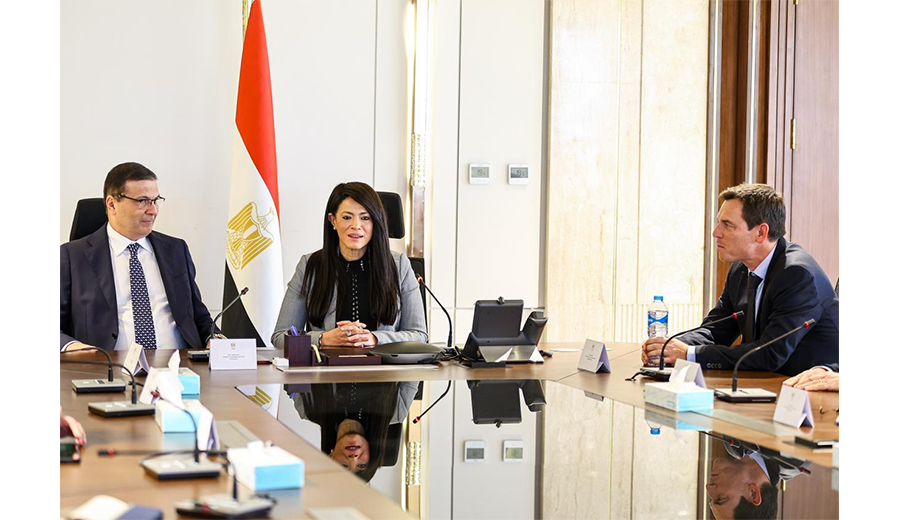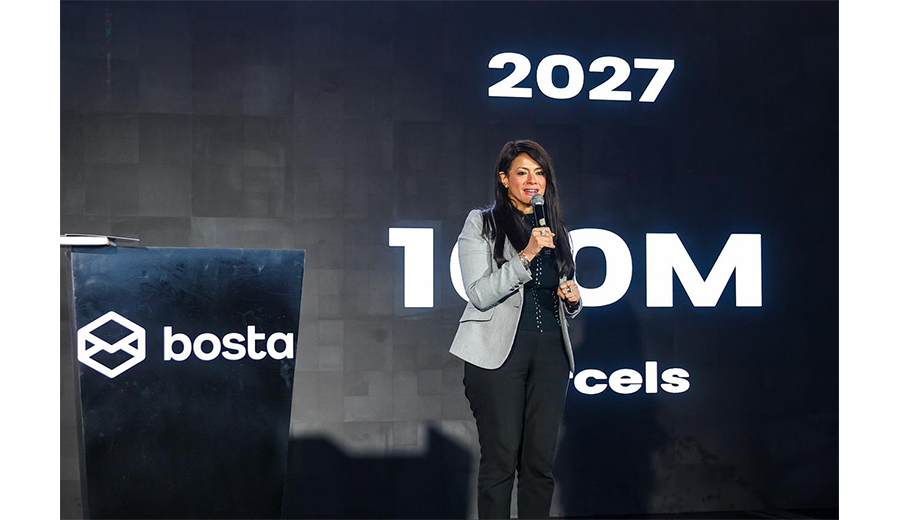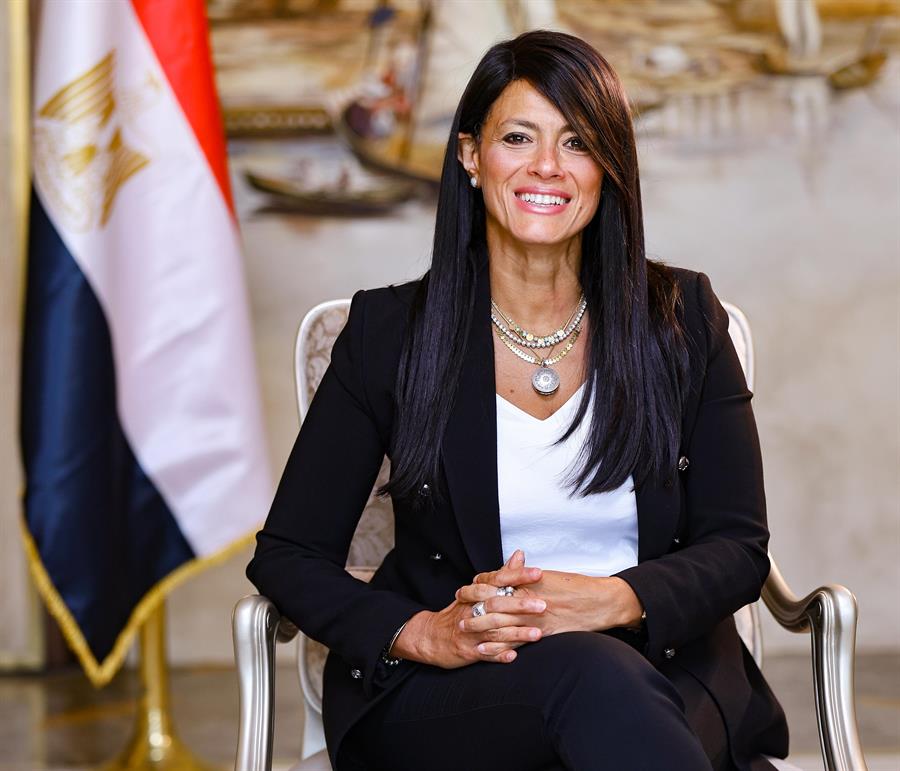H.E. Dr. Rania A. Al-Mashat, Minister of Planning, Economic Development, and International Cooperation, and Governor of Egypt at IDB, in her speech at the signing ceremony of the annual program with ITFC and ICD
04 February 2025
Egypt has strong, historical partnerships with the Islamic Development Bank that have boosted development efforts across various sectors.
New partnerships with ITFC enhance food security efforts and the provision of strategic goods.
Several programs are being implemented to support exporters, enable Egyptian companies to access foreign markets, and develop SMEs.
Expanding the partnership with ICD in alignment with the state's efforts to achieve economic development.
H.E. Dr. Rania A. Al-Mashat, Minister of Planning, Economic
Development, and International Cooperation and Egypt’s Governor at the Islamic
Development Bank Group (IDB), emphasized that the signing of the 2025 annual
work program between the Government of Egypt and the International Islamic
Trade Finance Corporation (ITFC) is part of the framework agreement signed with
the organization. The goal of the program is to enhance support for Egypt’s
economy through a range of diverse work programs.
This was stated during the signing ceremony of the ITFC's
annual work program and the ICD’s annual work program with the Government of
Egypt, in the presence of Lieutenant General Eng. Kamel El-Wazir, Deputy Prime
Minister for Industrial Development and Minister of Industry and Transport, Dr.
Sherif Farouk, Minister of Supply and Internal Trade, Eng. Hani Sonbol, CEO of
ITFC and Acting CEO of ICD, along with officials from GASC, EGPC, and the
private sector.
H.E. Dr. Al-Mashat affirmed that today’s signing of the work
program with the ITFC marks a new step in the successful developmental
partnership with the IDB Group in general and with ITFC in particular. Since
its inception in 2008, the ITFC has contributed to ensuring the availability of
strategic goods in the Egyptian market, providing financing amounting to $18.7
billion through five framework agreements, the most recent of which was signed
in 2018. Under this agreement, the financing amounted to $11.4 billion between
2018 and 2024, including $6.6 billion for the General Authority for Supply
Commodities (GASC) and $4.7 billion for the Egyptian General Petroleum
Corporation (EGPC), in addition to a $5 million allocation for the MSMEDA.
H.E. Minister Al-Mashat noted that the 2025 work program
aims to support food security, specifically in terms of providing basic and
strategic goods, in addition to providing petroleum to the EGPC to enhance the
availability of petroleum products and energy in the Egyptian market.
The program will also help diversify foreign funding sources
for these vital strategic goods, with a planned financing of $1.5 billion,
consisting of $800 million for the EGPC and $700 million for the GASC. She
noted that in 2024, the government signed a work program with the ITFC worth
$1.5 billion, while actual financing amounted to $2.133 billion, reflecting the
ITFC’s significant role in the Egyptian economy.
H.E. Dr. Al-Mashat commended the effective role the ITFC
plays in supporting foreign trade, particularly the export sector. Strategic
programs are being implemented to enhance international trade, including the
"Arab-African Trade Bridges" program, which will launch a country
program for 2025-2026 to support Egyptian exporters in reaching new foreign
markets in cooperation with relevant Egyptian authorities. Additionally, the
"Aid for Trade for Arab Countries" (AFTIAS 2) initiative is
implementing various projects, including the (She Trades 2) project, Phase 2.
Further, the second phase of the "Step Towards
Export" (STEP 2) program will support small exporters and small enterprises
in accessing international markets, enhancing the competitiveness of Egyptian
products globally, and boosting local manufacturing aimed at exports. This will
contribute to foreign currency earnings and strengthen the economy. Another
important initiative is the establishment of an Agricultural Industries Center
of Excellence in partnership with the United Nations Industrial Development
Organization (UNIDO).
The Minister of Planning, Economic Development, and
International Cooperation stated that the signing of the 2025 work program with
the ICD is part of the government's plan to enhance the role of the private
sector in Egypt's ongoing comprehensive and sustainable development. The new
program includes providing consulting services in the Sukuk sector to support
government efforts in diversifying funding sources and attracting foreign
investments.
H.E. Dr. Al-Mashat confirmed the continuation of the
successful partnership through the ICD's annual work program for 2025 in Egypt,
which will support the private sector in various ways. The program will provide
$100 million for financial institutions to finance SMEs and large private
sector companies working in strategic sectors essential for economic
development, particularly the industrial and agricultural sectors, which are
key targets of the country's structural reform agenda.
H.E. Dr. Al-Mashat also emphasized that the government will
continue its efforts to support the private sector, both domestic and foreign,
implementing all necessary structural reforms and providing incentives to
enhance the business environment for the private sector in Egypt. The
government will continue its plans to increase the private sector's
contribution to GDP.









